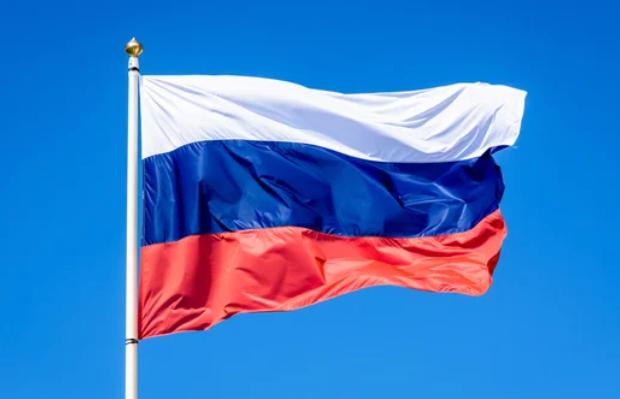Russia Suspends Participation in the Black Sea Grain Initiative
Moscow, Russia — On Friday, Russia announced a significant suspension of its participation in the Black Sea Grain Initiative. This strategic move entails the relinquishment of commitments that allowed Ukraine to export millions of tons of grain, despite the ongoing war in the region. The deal, brokered by the United Nations and Turkey, has been a crucial lifeline for food supplies globally, and this sudden decision has sparked widespread condemnation, raising concerns over an impending food security crisis in already vulnerable regions across the globe.
Contextual Background of the Grain Initiative
Signed in July 2022, the Black Sea Grain Initiative marked a diplomatic breakthrough in the floundering Ukraine conflict. Given that Ukraine and Russia are two of the world’s largest grain exporters, the initiative facilitated the safe passage of Ukrainian grain from Black Sea ports and aimed to curb an escalating global food crisis exacerbated by the war. Since its inception, the agreement has enabled the export of over 30 million tons of grain, which has played a significant role in stabilizing food prices and supply chains, particularly for nations in Africa and the Middle East that are heavily reliant on these shipments.
Economic Implications of the Suspension
The suspension has already triggered significant fluctuations in global markets, most notably illustrated by an 8% surge in wheat futures on Friday. Analysts anticipate continued volatility in food prices, emphasizing that vulnerable nations such as Somalia, Ethiopia, and Yemen are now at an escalated risk of food shortages and potential famine. According to David Beasley, the executive director of the World Food Programme, “This decision is catastrophic for millions of people who are already on the brink of starvation.” The implications of such a decision are monumental, with potential ramifications on a global scale.
Reactions from Ukrainian Officials and Global Leaders
In the wake of the announcement, Ukrainian President Volodymyr Zelenskyy condemned Russia for what he characterized as the weaponization of food supplies. “This is not just an attack on Ukraine; it’s an attack on global stability,” he stated, advocating for international accountability for Russia’s actions. This sentiment of outrage reverberated among global leaders, with U.N. Secretary-General António Guterres expressing “deep concern” and urging immediate negotiations to reinstate the agreement, labeling it a lifeline for millions worldwide.
International Condemnation and Calls to Action
The European Union and the United States quickly condemned Russia’s move, highlighting a narrative that positions the manipulation of food supplies as a geopolitical weapon. European Commission President Ursula von der Leyen underscored that this decision emphasizes Russia’s disregard for both global stability and human lives. Turkish President Recep Tayyip Erdoğan, who played a critical role in brokering the original deal, announced plans for emergency talks with both Ukraine and Russia, pledging to do everything possible to revive the agreement.
Russia’s Conditions for Reengagement
Russia has put forth several conditions for potentially rejoining the grain initiative, demanding the easing of restrictions on agricultural exports alongside the lifting of specific sanctions targeting its banking sector. Analysts suggest that Russia is leveraging its suspension as both a bargaining chip and a method to assert its geopolitical interests. Political analysts, such as Dr. Anna Petrova from the Carnegie Moscow Center, have characterized this maneuver as “classic brinkmanship,” indicative of Russia’s attempt to bolster its negotiating power amid a tense geopolitical landscape.
Looking Ahead: Diplomatic Efforts and the Fragility of Food Systems
As diplomatic efforts intensify, the United Nations and Turkey are expected to take the lead in negotiations aimed at salvaging the grain deal. Experts caution that the incident reflects the fragility of global food chains and the disproportionate impact of conflicts on vulnerable populations worldwide. “This crisis highlights the urgent need for resilient and diversified food supply chains,” notes Dr. Mark Collins, an agricultural economist, stressing the necessity to mitigate the risk of one country’s actions jeopardizing millions of lives.
Conclusion
The implications of Russia’s decision to suspend its participation in the Black Sea Grain Initiative extend far beyond the immediate economic impacts. As nations grapple with food security threats, the stakes are incredibly high for the millions who rely on this agreement for their survival. Continued diplomatic efforts will be critical in seeking a resolution, as the world watches closely the developments arising from this pivotal moment in global food politics.
FAQs
What is the Black Sea Grain Initiative?
The Black Sea Grain Initiative is a diplomatic agreement signed in July 2022 that allows Ukraine to export grain from its Black Sea ports despite the ongoing war, facilitating the shipment of millions of tons of grain to global markets.
Why did Russia suspend its participation in the initiative?
Russia cited “unfulfilled promises” regarding agricultural export facilitation and claimed that Western sanctions hindered its ability to export fertilizer and grain as reasons for its suspension from the agreement.
What are the potential consequences of this suspension?
The suspension is anticipated to create immediate volatility in global food markets, impacting food prices significantly and increasing the risk of food insecurity in vulnerable regions such as Africa and the Middle East.
How are global leaders responding to Russia’s decision?
International leaders and organizations, including the United Nations, EU, and the United States, have condemned Russia’s suspension of the agreement, emphasizing the need for negotiations to restore the deal and criticizing the move as a geopolitical manipulation of food supplies.
What steps are being taken to salvage the deal?
Turkey and the United Nations are expected to lead diplomatic efforts to negotiate a revival of the Black Sea Grain Initiative, seeking to address the issues raised by Russia while stabilizing food supply chains globally.

